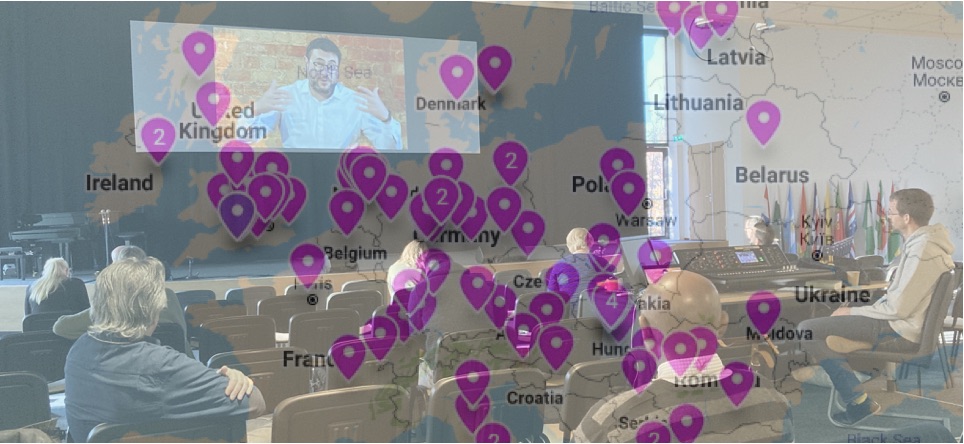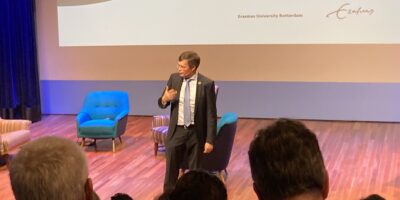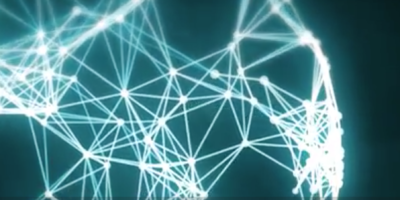Sometimes we need to risk sticking our heads out over the parapet to look beyond our own church, organisation, neighbourhood or nation – to catch a much bigger picture of what God is doing across Europe and in our world.
Lausanne Europe 20/21 has been that kind of experience this week: engaging hundreds, and potentially thousands, of leaders from every corner of Europe in thinking, exhorting and praying together about making God known to Europeans. Whether following alone from one’s home or office, or in national gatherings such as the one I joined in Almere just outside of Amsterdam, we were all drawn into a broad, multi-ethnic, multi-lingual, multi-national ‘communion of saints’ blanketing Europe and far beyond. We became more conscious of our own cultural blind-spots, nationalistic limitations, linguistic differences and perhaps even racial prejudices. We were confronted with needs and challenges in today’s needy mission field of Europe.
The four days of online conversations, video reports, exchanges through chat boxes, interactive seminars and bible expositions have created a landmark event which will impact the evangelical landscape of Europe for decades to come. It has produced a rich, permanent, resource archive available to everyone, a common library of inspiration and information for churches and organisations, pastors and missionaries, lay and clergy, social workers and journalists, artists and students … for anyone concerned with the spread of the kingdom in Europe.
Archive
No one could attend all the simultaneous sessions (although the temptation was to ‘zap channels’) so the online archive will enable us still to get the most out of this watershed event. Here’s a listing of the recorded seminar presentations with discussions available on the Lausanne Europe platform: which ones could help your work?
• Art-the language of the European soul • Reaching secular youth • Connecting with diaspora churches • Overcoming the gods of Europe •Lessons from the early church and the Reformation • Personal revival • Nominal christianity • Church planting movements in Europe • Climate change • Sustainable Development Goals (SDGs) • Leadership • Religious liberty • Creation care • Europe’s role in world mission • Human trafficking • Islam and apologetics • Women and men leading together • Mobilising your church in evangelism • Simple church • Church and populistic politics • Sport • Reaching second generation diaspora • Anxiety • Apologetics • AI and ethics • Refugees • Christians and the EU • Oral communication of the gospel • Political involvement • The transgender movement • What is sexuality for? • Reconciliation in a polarised world • Faith and science • The gospel and the city • The gospel and the workplace • Identity politics • Decolonising mission • Dialogue with Catholics • Five-fold ministries • Opportunities and challenges of a media-saturated age • Pornography • Cross-cultural evangelism • A Muslim’s view of Europe • Nationalism as idolatry • Anti-semitism• and more…!
Some of the many highlights included:
- Jim Memory’s abbreviated presentation of his report Europe 2021 about which we have written in recent weeks, but for which unfortunately there was no opportunity to engage;
- Kate Coleman’s challenge for us to be ready to leave the comfort of the upper room, as the early disciples were moved to do so by the Spirit’s outpouring, and to close the gap between the church and the world – again with little room for response;
- Luke Greenwood’s plea to hear the cry of spiritual hunger from the young generation, expressed in the haunting words of the secular band, Bring me the horizon, from their song Drown:
Got a hole in my soul, growing deeper and deeper/And I can’t take one more moment of this silence/The loneliness is haunting me/And the weight of the world’s getting harder to hold up/Who will fix me now? Dive in when I’m down?/Save me from myself, don’t let me drown/‘Cause you know that I can’t do this on my own.
Questions
In the closing sessions, Lausanne Movement veterans Sam Escobar and Os Guinness passed on historical perspectives to first-time Lausanne participants. Peruvian Escobar, whose 1974 talk helped restore to the global evangelical movement awareness of the socio-political dimensions of the gospel, urged his young audience to keep open to the questions that come from the world, especially from the new generation.
Guinness recalled his upbringing in China as a missionary child, and the Chinese interest in why the peninsular of the Eurasian landmass we now call Europe dominated the world scene over the past five centuries. They concluded the reason was Europe’s religion, specifically the rediscoveries of the Protestant Reformation of the big truths of calling, leading to capitalism, and conscience leading to human rights. While Europe owed much to the Greeks and Romans, Os continued, Europe was the heir of the gospel, principally the Reformation.
Yet now we were at a true civilisational moment with the West in decline, authoritarianism rising, climate change, and hearts failing for fear. Alternatives of the faith were proving bankrupt, disastrous and empty. “The gospel is truly the best news ever! Not only for individuals but for societies and the world at large,” Os concluded.
Till next week,



